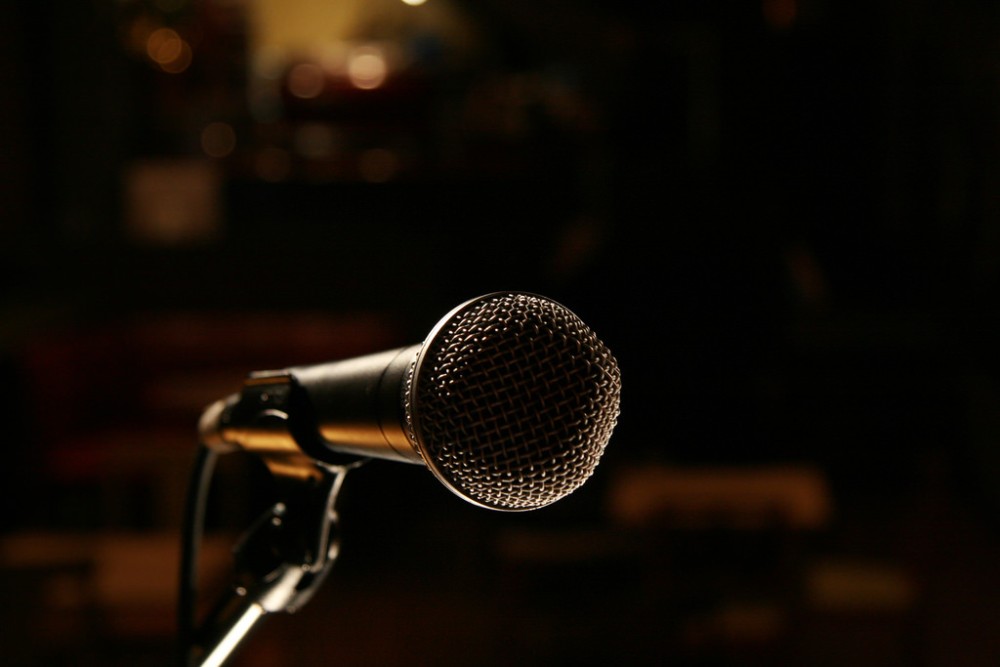
Open mic nights are about vulnerability, openness, and respect. Sometimes I lose sight of that.
Photo by Steve Bragg.
Let's unpack this
One thing I love about Kitchener-Waterloo is the supportive community that has developed around open mics, house shows, and small-scale concerts. It takes a strong culture of togetherness for hosts to prepare a safe and welcoming venue. It takes dedication and a genuine interest in the art for people to show up to these events. And of course, it takes confidence and trust for performers to take to the stage.
The closeness of this community overlaps with other spheres of my life -- studying, politics, activism, art, entrepreneurship, and community events. Some of the same people tend to pop up in my life, and it's wonderful to be living in a place where these chance encounters combine to give texture and depth to my relationships.
So I had to stop and reflect when I caught myself descending into a cynical spiral of contempt a few weeks ago. This was at an open mic, and an older woman was singing a boomer-hippie anthem about wanting to "turn on the TV and see peace on Earth".
Having been primed with a steady diet of anti-Trump thinkpieces, critiques of Indigenous reconciliation, and social justice commentators, I scoffed inwardly. I want to turn on the TV and see peace on Earth? What kind of lazy storybook optimism is this? Do people really think that if they wish hard enough and send enough good vibes to Syria that their civil war will end? Are people really so naïve?
Not to mention, the premise that you could "turn on your TV" as a precursor to world peace plays right into the hands of global capitalism. Can't they see the corporate influence responsible for widening the wealth gap is the same force that brings us these very TVs?
This performer probably lives in a big old house in Westmount, that they bought back when jobs were good and home ownership was easy to come by. Who are they to sing a happy-go-lucky tune about peace on Earth?
This line of thinking wasn't helpful. I found myself launching into a righteous attack against someone who should really be a fellow ally. Perhaps, given enough time and other chance encounters around town, they could become a friend. But there's no way that will happen if I can't set aside my hostility.
It's important for allies to hold space for other would-be allies. To empathise and edify at the same time, in a spirit of building a stronger common front against injustice. This doesn't mean giving dominant and oppressive voices the benefit of the doubt. It means realising that we're all learning, and passing on the insight I've received from others.
So next time I find myself silently fuming about a supposed ally doing things the "wrong" way, I'll try to follow my own advice.
Sam Nabi